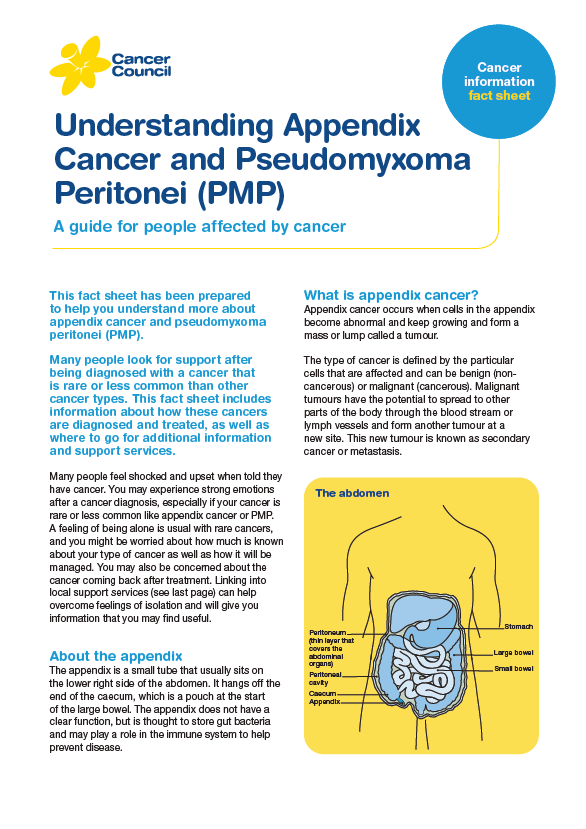- Home
- Appendix cancer and pseudomyxoma peritonei (PMP)
- Managing side effects
Managing side effects
Here we look at the different side effects of appendix cancer and PMP and their treatment, and ways to manage these.
Learn more about:
- Side effects of treatment
- Nutrition and exercise
- Video: How to eat well after a cancer diagnosis
- Video: Why exercise is important after a cancer diagnosis
Side effects of treatment
All treatments can have side effects. The type of side effects that you may have will depend on the type of treatment and where in your body the cancer is. Some people have very few side effects and others have more.
Your specialist team will discuss all possible side effects, both short and long-term (including those that have a late effect and may not start immediately), with you before your treatment begins.
One issue that is important to discuss before you undergo treatment is fertility, particularly if you want to have children in the future. This is especially the case if during your abdominal or pelvic surgery:
- your seminal vesicles are severed (in males)
- your uterus, ovaries and/or fallopian tubes are removed (in females).
For more on this, see Fertility and cancer or call Cancer Council 13 11 20.
Common side effects
| Surgery: general |
|
| Surgery: CRS or peritonectomy |
|
| Chemotherapy |
|
| Radiation therapy |
|
Nutrition and exercise
If you have been diagnosed with appendix cancer or PMP, both the cancer and treatment will place extra demands on your body. Research suggests that eating well and exercising can benefit people during and after cancer treatment.
Eating well and being physically active can help you cope with some of the common side effects of cancer treatment, speed up recovery, improve sleep, and help improve your quality of life by giving you more energy, keeping your muscles strong, helping you maintain a healthy body weight and boosting your mood.
You can discuss individual nutrition and exercise plans with health professionals such as dietitians, exercise physiologists and physiotherapists.
For more on this, see our general sections on Nutrition and cancer and Exercise and cancer or call 13 11 20.
→ READ MORE: Life after treatment
How to eat well after a cancer diagnosis
Why exercise is important after a cancer diagnosis
Why is exercise so important after a cancer diagnosis? Watch this video to find out or watch our Exercise Video Series for a guide of the best exercises for you.
John Henriksen, Consumer; Prof David Morris, Surgical Oncologist, St George Hospital, Sydney, NSW; Caitriona Nienaber, 13 11 20 Consultant, Cancer Council WA.
View the Cancer Council NSW editorial policy.
